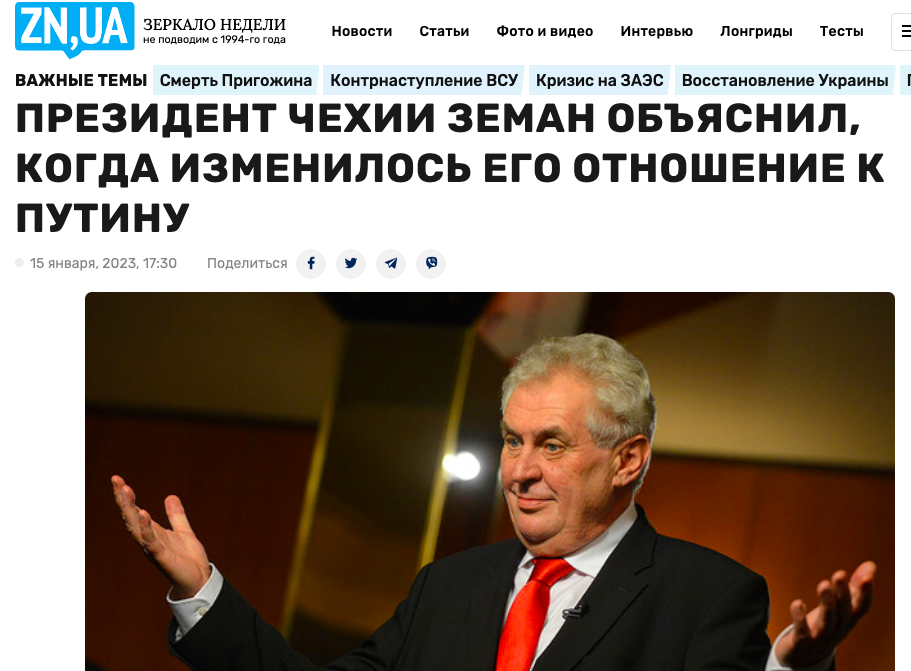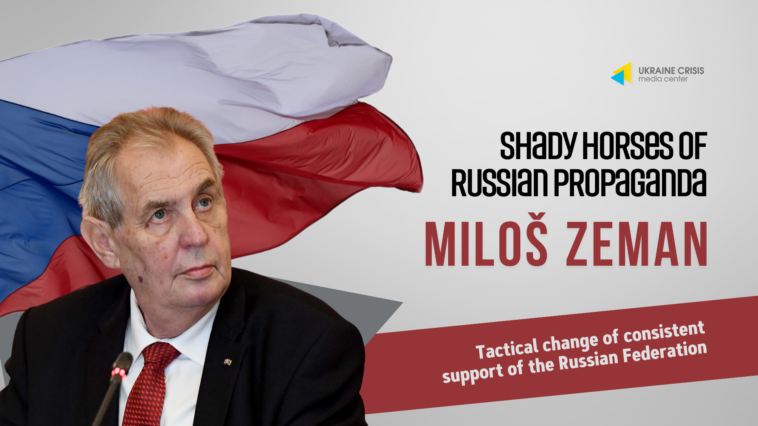The project “Shady Horses” delves into investigating Russian propaganda dissemination within Western countries through prominent individuals, often referred to as “talking heads.” By analyzing the influence and messaging of these figures, the project seeks to shed light on individuals, usually top politicians and high-ranking experts, who stay behind disseminating Russian propaganda in different countries to highlight how they falsify public opinion in favor of Russia.
Miloš Zeman had a reputation as one of the most Kremlin-friendly European politicians. In the past, he has expressed substantial goodwill toward Russia and taken positions that have helped the Kremlin’s image in the European community. However, following Russia’s full-scale invasion of Ukraine, Zeman abruptly condemned Russian aggression, backed Ukraine, and demanded tough sanctions against the Kremlin.
Simultaneously, while claiming to support Ukraine, Zeman expressed reservations about anti-Russian sanctions and has been quietly promoting pro-Kremlin narratives. After Russia’s invasion of Ukraine, his “change” of views can be interpreted as an attempt to adapt his position to changing public opinion. Zeman’s condemnation of Russian aggression may be more of a political advantage and an adaptation to the circumstances than a genuine change of heart.
So who is this shady horse of Russian propaganda?
Who are they? Former President of Czech Republic Miloš Zeman
Where are they from? Czech Republic
Political affiliation? Honorary chairman of the centre-right Party of Civic Rights.
What have they been saying?
“I don’t argue with the grounds for sanctions. I have read that the EU loses from sanctions, and Russia has practically no losses. I would say that this is a win-win situation.”

“In terms of Ukraine, my unwavering stance is that the nation should adopt a neutral position and pursue a policy akin to ‘Finlandization.’”
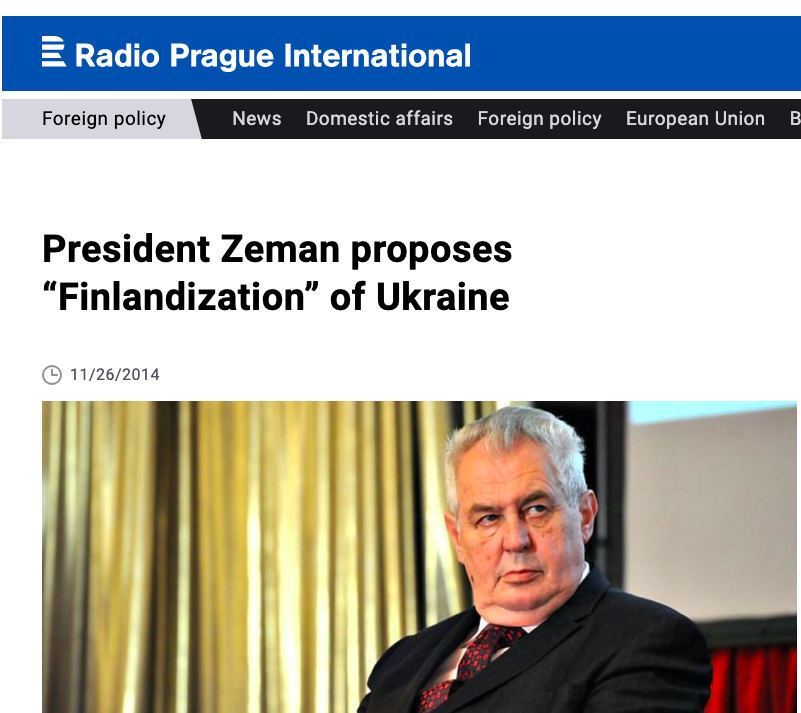
“Despite the sanctions, economic cooperation is developing [between the Czech Republic and the Russian Federation]. But this, however, does not mean that I have resigned myself to the sanctions. You know very well that I have been their opponent for a long time. And this concerns not only the sanctions adopted by the EU against Russia but also the sanctions taken by the Russian Federation against the EU.”
“If you want to increase leaders’ popularity, come with sanctions. President Putin’s high popularity rating, approximately 80 percent, can in part be attributed to the impact of sanctions.”

“Crimea is annexation, without any doubt. […]. But Crimea is at the same time fait accompli. If there were a dialogue between Russia and Ukraine, I think – and this is just my point of view – that one could try to get some kind of compensation from Russia for Crimea in financial or other form – I mean oil and gas supplies.”
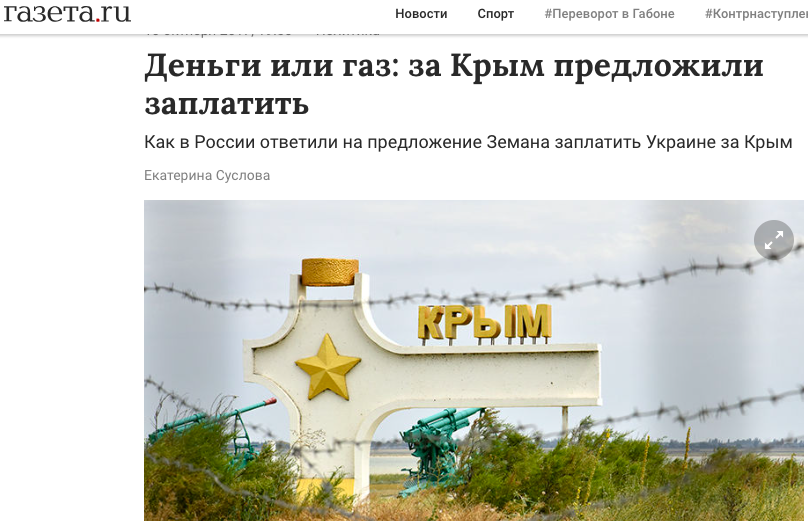
“The essence of the Ukrainian revolution is that bandits are fighting bandits here. Ukraine requires a strong leader, not the bandits who ruled previously..
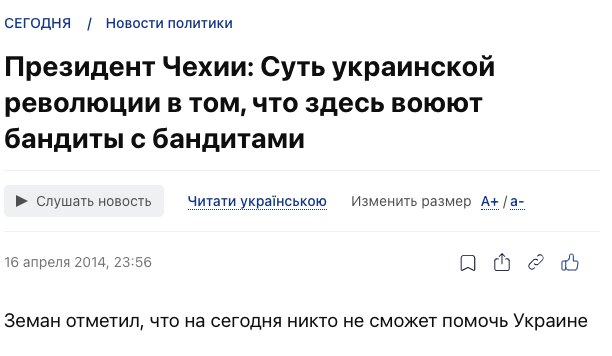
“A reasonable settlement, provided by the Minsk agreements (but, unfortunately, no one is implementing them), is to change the Ukrainian Constitution. In particular, decentralization is needed. So that not only Russian-speaking but also other regions have greater autonomy.”
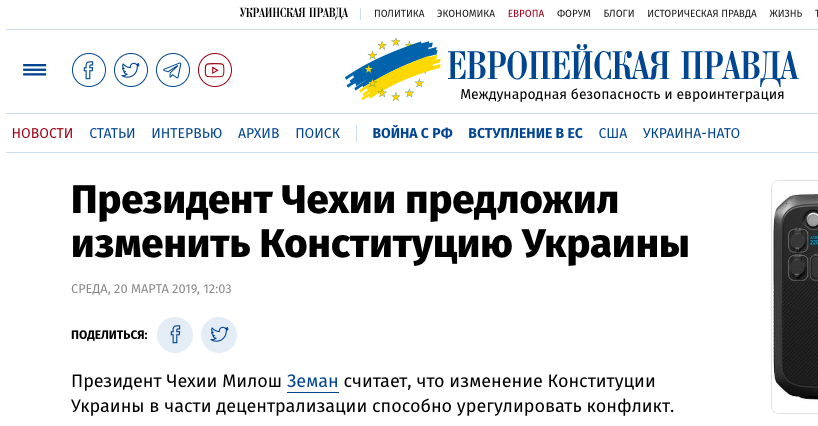
“In general, I don’t like violent revolutions, so, for example, I also don’t like Maidan and things like that, which, as you know, happened in Kyiv.:
I have a dream, a vision for the future where the Russian Federation becomes a part of the European Union. If that concept doesn’t sit well with you, consider the reverse scenario, where the EU integrates with the Russian Federation. The outcome remains unchanged.

Let’s not pretend that everyone who didn’t talk about Putin as a criminal before was utterly out of the picture or that everyone who tried to communicate with him supported his every move. The invasion of Ukraine served as a wake-up call for numerous individuals, both within and beyond Russia, myself included.
Since I wanted to protect the interests of the Czech economy, I didn’t see any reason to speak out against Vladimir Putin initially. It was only after the attack on Ukraine that I felt a red line had been crossed, a point at which even economic diplomacy had to take a back seat.
